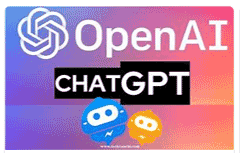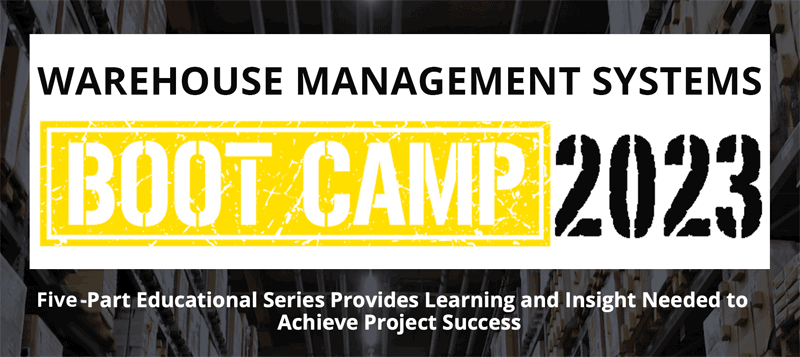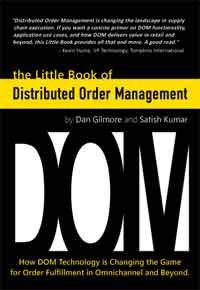ChatGPT and the Supply Chain
All right, I am willing to fess up: I don't really much understand artificial intelligence (AI).
I mean, the name AI itself is somewhat self-explanatory at the highest level: it involves technology that can somehow replicate the processing power of the human brain.
| GILMORE SAYS: |
WHAT DO YOU SAY?'
More on that in a couple of weeks - if ChatGPT hasn't already written my follow up column by that time, alas probably with better grammar.
Send us your
Feedback here
|
We can go all the way back to 1997, when after having lost a chess match to then reigning world chess champion, Garry Kasparov, IBM's Deep Blue computer beat Kasparov in a rematch. Playing six games over several days, it was two wins for IBM, one for the champion and three draws. The match lasted several days and received massive media coverage - as AI started to imprint itself on the human psyche.
With advances since then, I doubt the current best chess player in the world would get near even a tie in a faceoff today.
So I think we call get what AI can do, to an extent: it's the "how" part that is beyond me.
Then there us the related concept of machine learning, or ML. In fact, it is common place to see the acronyms paired together, as in "AI/ML."
It is easier I think to get your head around ML, as I did with this example I heard many years ago of how ML can work. Let's say you want a robot arm to replace a human who stands all day and picks bad potato chips off a conveyor best before they are bagged, bad chips being defined as those with large black spots on them.
To teach the robot, a human QA person looks at images of as few as 100 chips, some good, some bad. As each chip is viewed, the human rates it good or bad. The ML takes those judgement, and merges with the attributes of each chip, good and bad: the size if the chip, the size of any black spots, the darkness of the spot, etc. It eventually learns what attributes in a chip make it no good, which the robot and its vision system use to select no good chips from the rest
This is understandable, from my view.
Maybe six years ago or so, our former columnist, Dr. Mike Watson, predicted that technology vendors would begin labeling almost any sort of advanced analytic as AI, and I think he was right. At the National Retail Federation show in January dozens of vendors were promoting their use of AI, to the point it seemed almost obligatory.
For several years now, there have been growing concerns about the eventual impact of AI/ML on the economy and jobs. While I doubt too many lament the demise the human potato chip inspector job, if we start moving to AI-based technology creating the demand plan, or dispatching the trucks, that takes the issue to a whole new level. I am actually selling it short - forget "create the demand plan," how about "reconcile the demand and supply plans."
I believe we are not far away.
But now, coming for most of us out of nowhere, is ChatGPT, which represents a new class of AI tools - and which without question can do some amazing things. This new technology is called "generative AI."
What does that mean?
Generative AI is a kind of artificial intelligence that can generate all kinds of data, including audio, code, images, text, simulations, 3D objects, videos, and so forth. It takes inspiration from existing data, but also generates new and unexpected outputs, breaking new ground in the world of product design, art, and much more - including I have no doubt supply chain.
 In December, a McKinsey consultant gave ChatGPT a test. It requested of it the following: Write the opening paragraph for an article about how transformative generative AI will be for business. In December, a McKinsey consultant gave ChatGPT a test. It requested of it the following: Write the opening paragraph for an article about how transformative generative AI will be for business.
Rather amazingly, he quickly got back the following: "The rise of generative AI has the potential to be a major game-changer for businesses. This technology, which allows for the creation of original content by learning from existing data, has the power to revolutionize industries and transform the way companies operate. By enabling the automation of many tasks that were previously done by humans, generative AI has the potential to increase efficiency and productivity, reduce costs, and open up new opportunities for growth. As such, businesses that are able to effectively leverage the technology are likely to gain a significant competitive advantage."
I think we can agree that's pretty darn good. I figure it won't be long before ChatGPT can watch a movie and write a review, along with a thumbs up or thumbs down decision.
Examples of what ChatGPT can do I have seen have mostly been along similar lines, such as composing a term paper, complete with source notes, on maybe the industrial revolution orvirtually any topic. Forget all that research and writing effort - just ask ChatGBT to spit one out for you - though you might find classmates are turning in the same report.
Are there applications for this in the supply chain? I am sure the answer is Yes, and for using this level of smarts in very different ways - such as optimizing a warehouse mobile robot fleet.
More on that in a couple of weeks - if ChatGPT hasn't already written my follow up column by that time, alas probably with better grammar.
What is your reaction to these thoughts on ChatGPT and the supply chan? Let us know your thought at the Feedback section below.
|






 In December, a McKinsey consultant gave ChatGPT a test. It requested of it the following: Write the opening paragraph for an article about how transformative generative AI will be for business.
In December, a McKinsey consultant gave ChatGPT a test. It requested of it the following: Write the opening paragraph for an article about how transformative generative AI will be for business.


